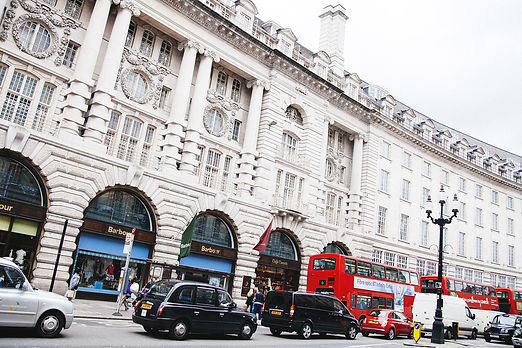
LONDON - THE BFI
VIRTUAL REALITY
This week, I attended the BFI film festival in London. One of the many sessions revolved around the idea of VR within the film industry. It is believed that virtual reality is the future of film making. In theory, you could look at any film and debate whether or not it is virtual reality. 360-degree film productions are being previewed up and down the country. I was given the chance to watch one of these films at the film festival. Although the concept appears exciting and new, the reality of it is that you are stood, turning around in circles, hoping not to miss an important part of the film. In my personal opinion, I feel more emerged by a film if I can connect with the plot or the characters, rather than appear to be inside the film. I have previously wrote up a caste study on the film Ready Player One and how the film is heavily centred around the concept of virtual reality. I had not anticipated is that whilst shooting the film, Spielberg also used virtual reality software to understand how the film was going to look. He crafted the props and the set-in virtual reality and the camera also had virtual reality built into it. The cast, including Tye Sheridan and Olivia Cooke, both used virtual reality to perfect their movements and make the Oasis feel more real.
Virtual reality is limitless and with there being different types of virtual reality, the market may never become saturated. But does the film become more of a game or is it still classed as a film? As well as talking about Ready Player One, the panel of professionals also spoke about Netflix’s huge hit, Bandersnatch. I have previously brought up the film in a past document but Bandersnatch could be looked at as more of a game than an actual film. Both genres of entertainment are artistic but it could be argued either way. There is a deeper philosophical understanding of Bandersnatch. The film gives audiences two choices at certain points in the film. Some choices are trivial like choosing between cereal and choosing between music. Then there’s darker choices like choosing to fight people and choosing to murder. Are we really in control of our own choices, though? I played this for research purposes. I will admit it may have been for entertainment purposes too. I realised that you had a matter of seconds to pick your option and I ran out of time on the cereal question. I am fairly indecisive. Netflix ended up choosing Rice Crispies for me. Now, I could have let it slide. I could have carried on with the film but the mere thought of Rice Crispies over Frosties annoyed me. The idea of me not being able to choose between both options, then being annoyed when Netflix chose one for me says a lot. It proves that I wanted to be in control of my own actions throughout the film and I needed every choice to be my own. At certain points in the film, if I had chosen wrong, it would take me back to a check point and I would have to play again. Well, I finally finished in two hours and I think I seriously messed up the main character’s life and he was sent to prison because of me. You are forced to make spontaneous decisions within seconds and the character’s life is depending on your choices, which is terrifying. I don’t even have control over my own life. Now, I wanted to guide the main character and make good decisions for him. I felt sorry for the main character and I tried to keep him out of trouble and essentially prison. Netflix essentially made us believe we were making the choices for Stefan, the main character, but Netflix were controlling us as much as we were controlling Stefan. We were being made to make the choices for him and when we made the wrong decision, we were pushed back to a check point. I was fully immersed by this film. I believed I was in charge of someone’s life and choices and I had to make them for him.
With this success, it isn’t surprising Hollywood are taking it up a level. We will see more films based around the concept of VR and will also create more films using VR. On the panel of experts, was a lady named Nina Salomons. Salomons is an expert in the field of VR and uses the software to create films. She showed the room a video of her using VR and examples of where VR is being used in games and films. Salomons also explained how VR can help reform criminals and help with therapy and coping with mental health. I found this fascinating as I never originally thought that VR could reach into so many industries. I had only looked at it in terms of entertainment as it is what I have been researching but I can now use this evidence for my news package and also educate people like I have been educated.
















